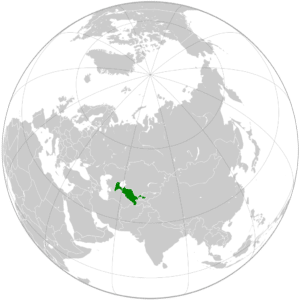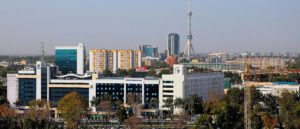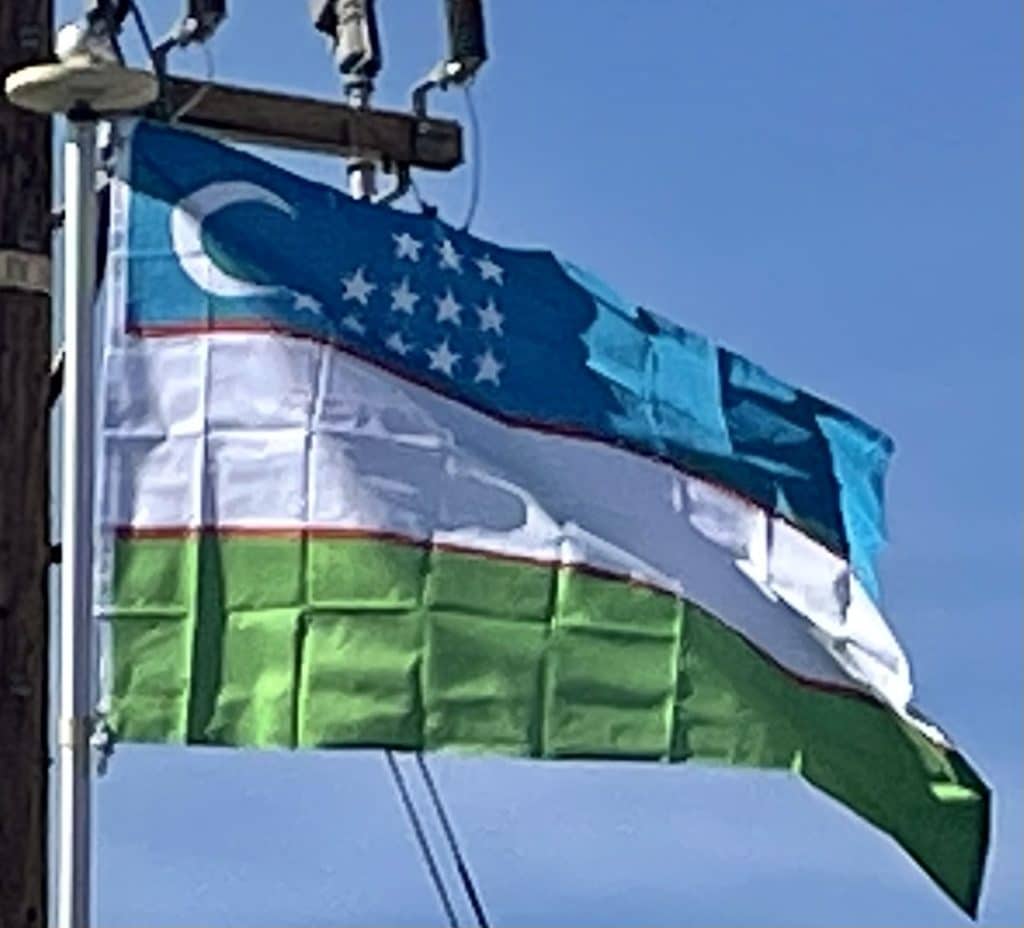Introduction:
Uzbekistan, officially the Republic of Uzbekistan, is a landlocked country in Central Asia. It is surrounded by five countries: Kazakhstan to the north; Kyrgyzstan to the northeast; Tajikistan to the southeast; Afghanistan to the south, Turkmenistan to the south-west. Its capital and largest city is Tashkent. Along with Liechtenstein, it is one of two doubly landlocked countries.
What is now Uzbekistan was in ancient times part of the Iranian-speaking region of Transoxiana and Turan. The first recorded settlers were Eastern Iranian nomads, known as Scythians, who founded kingdoms in Khwarazm (8th–6th centuries BC), Bactria (8th–6th centuries BC), Sogdia (8th–6th centuries BC), Fergana (3rd century BC – 6th century AD), and Margiana (3rd century BC – 6th century AD). The area was incorporated into the Iranian Achaemenid Empire and, after a period of Macedonian rule, was ruled by the Iranian Parthian Empire and later by the Sasanian Empire, until the Muslim conquest of Persia in the seventh century. The Early Muslim conquests converted most of the people, including the local ruling classes, into adherents of Islam. During this period, cities such as Samarkand, Khiva, and Bukhara began to grow rich from the Silk Road, and witnessed the emergence of leading figures of the Islamic Golden Age, including Muhammad al-Bukhari, Al-Tirmidhi, Ismail Samani, al-Biruni, and Avicenna. The local Khwarazmian dynasty and Central Asia as a whole were decimated by the Mongol invasion in the 13th century, after which the region became dominated by Turkic peoples.

The city of Shahrisabz was the birthplace of the Turco-Mongol conqueror Timur (Tamerlane), who in the 14th century established the Timurid Empire and was proclaimed the Supreme Emir of Turan with his capital in Samarkand, which became a center of science under the rule of Ulugh Beg, giving birth to the Timurid Renaissance. The territories of the Timurid dynasty were conquered by Uzbek Shaybanids in the 16th century, moving the center of power to Bukhara. The region was split into three states: the Khanate of Khiva, Khanate of Kokand and Emirate of Bukhara. Conquests by Emperor Babur towards the east led to the foundation of India’s newest invasions as Mughal Empire. All of Central Asia was gradually incorporated into the Russian Empire during the 19th century, with Tashkent becoming the political center of Russian Turkestan. In 1924, national delimitation created the Uzbek Soviet Socialist Republic as an independent republic within the Soviet Union. Following the dissolution of the Soviet Union, it declared independence as the Republic of Uzbekistan on 31 August 1991.
The official language of Uzbekistan is Uzbek, a Turkic language written in a modified Latin alphabet and spoken natively by approximately 85% of the population. Russian has widespread use as an inter-ethnic tongue and in governance. Uzbeks constitute 81% of the population, followed by Russians (5.4%), Tajiks (4.0%), Kazakhs (3.0%) and others (6.5%). Muslims constitute 93% of the people while 5% follow Russian Orthodox Christianity and 2% of the population follow other religions or are non-religious. A majority of Uzbeks are non-denominational Muslims. Uzbekistan is a member of the CIS, OSCE, UN and the SCO. While officially a democratic republic, by 2008 non-governmental human rights organizations defined Uzbekistan as “an authoritarian state with limited civil rights”.

As a sovereign state, Uzbekistan is a secular, unitary, presidential, constitutional republic. Uzbekistan comprises 12 regions (vilayats), Tashkent City and one autonomous republic, Karakalpakstan. The capital and largest city of Uzbekistan is Tashkent. Following the death of longtime dictator Islam Karimov in 2016, independent Uzbekistan’s second president Shavkat Mirziyoyev undertook several reforms to ease repression in Uzbekistan. He stated he intended to abolish cotton slavery, systematic use of child labor, and exit visas, and to introduce a tax reform and create four new free economic zones. He also gave amnesty to some political prisoners. Relations with the neighboring countries of Kyrgyzstan, Tajikistan and Afghanistan drastically improved. The Amnesty International 2017/18 report on human rights in Uzbekistan found remnant repressive measures or lack of universal rule of law, specific issues being a small minority of labor force in cotton fields being forced labor and restrictions on the movement of ‘freed’ prisoners. A United Nations report of 2020 found much progress toward achieving the UN’s sustainable development goals.
